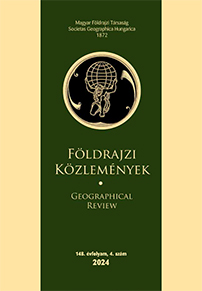KOMLÓ – THE GATE TO THE MECSEK? THE DIFFICULTIES OF REBRANDING OF A SMALL TOWN ON THE EXAMPLE OF A FORMER MINING TOWN
Abstract
Komló is a small town in southern Transdanubia, north of Pécs, with a population of just over 20,000. Following the start of coal mining at the end of the 19th century, it transformed from a small mountain village into a proud socialist town, reaching its heyday in the late 1970s. The town’s economy was almost entirely based on coal mining, which declined rapidly in the 1990s and finally ceased completely in the early 2000s, leaving behind unemployment, emigration, and all the symptoms of a shrinking small town. Komló’s image suffered irreparable damage, and without any previous settlement traditions, it was difficult to return to the traditional identity of small towns. This study, focusing on Komló, examines the questions of small-town image and brand building, and the possibilities of rebranding in the context of post-industrial development. Using this specific case, the authors present the steps taken so far in such an attempt and its possible outcome. The establishment of the Komlóverzum Museum has initiated a process that could make the town, located in the heart of the Mecsek Mountains, the center of a future UNESCO Geopark.
Copyright (c) 2025 Péter Merza, Gábor Pirisi, Henriett Maráz, Norbert Pap

This work is licensed under a Creative Commons Attribution-NonCommercial-NoDerivatives 4.0 International License.



